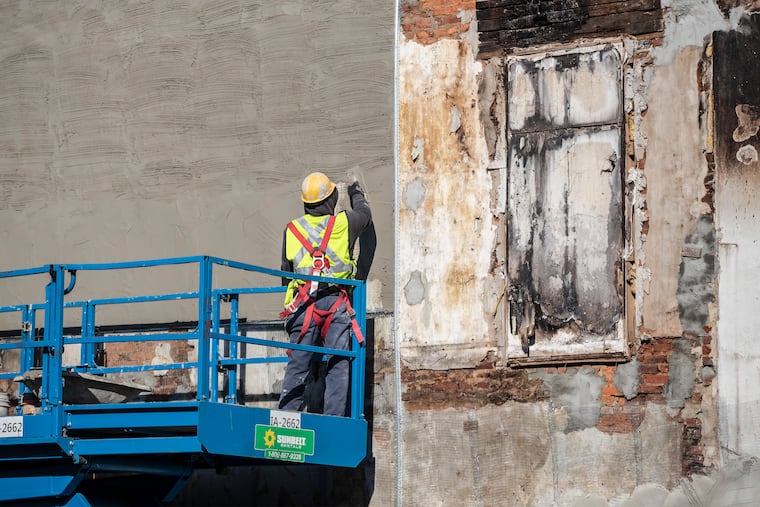This Philadelphia-based nonprofit is building out a national job training program. It aims to train thousands per year.
OIC of America this week received a $500,000 grant toward a program that aims to train 100,000 people annually by 2030.

As a national labor shortage continues, a Philadelphia-based nonprofit is working on a solution: training 100,000 people for jobs every year.
OIC of America, which has roots in a Philadelphia center launched in 1964 out of an abandoned jail site, is aiming to reach that annual number by 2030. OIC works with affiliates across the country to provide education and job training for low-income people and previously incarcerated individuals.
The nonprofit received a $500,000 grant from the U.S. Bank Foundation Opportunity Fund this week toward its Sullivan Training Network, which has facilities in several states, including Pennsylvania.
The training network provides weeks-long job-skills instruction in construction, disaster recovery, manufacturing, supply chain management, and financial services, among other areas.
“Working-class, poor people, low-income people, have been left behind and forgotten,” said Louis J. King II, CEO and president of OIC of America. “The OICs provide them with the new skills that they need to transform their lives and provide pathways to middle class.”
While the Sullivan Training Network started about three years ago, the nonprofit has a long history of connecting disadvantaged groups with job training. The Rev. Leon Sullivan, longtime leader of Zion Baptist Church in North Philadelphia, founded OIC, frustrated that local business owners were refusing to hire Black workers when he asked them to do so.
Sullivan was also the author of the Sullivan Principles, a set of guidelines for companies working in South Africa during apartheid. He was the first Black person appointed to the board of General Motors in 1971, and, according to OIC, that made him the first Black board member of any Fortune 500 company.
Beyond the Sullivan Training Network, the nonprofit also has a program that provides support to young people interested in careers in STEM, and a reentry program funded by the U.S. Department of Labor.
“The OICs have always been based in vocational training,” said King, who has led the organization since 2022. “Over the years, though, as the federal funding kind of drifted away, the affiliates found other ways to carry out their mission.”
Launching the Sullivan Training Network, King said, “was my way of getting us centered again and focused on hands-on [career and technical education] training, jobs for today, tomorrow, and the future.”
In OIC’s heyday in the late 1960s and early ’70s, the organization had roughly 150 affiliates, said King. That number dwindled to 27 by the current decade.
But since King joined the nonprofit’s national office, he said, it’s growing again, with roughly 40 affiliates and partners today, much of that growth coming from the Sullivan Training Network.
When the program is fully up and running, King expects it to cost between $50 million and $75 million annually, using federal, state, and local funding as well as private-sector and individual donations.
The U.S. Bank Foundation provided $250,000 in funding two years ago, he said, in addition to the $500,000 grant announced this week. The new funding will specifically go toward training in Minnesota, Arizona, California, Oregon, Washington, and Ohio.
“Who’s going to rebuild the [Pacific] Palisades? Who’s going to rebuild Asheville? Who is going to take care of America’s crumbling infrastructure?” King said in an interview Wednesday. “We possess the talent in these communities. If we just reach out to the people, have them believe in themselves, believe in each other, it will make America a better place.”